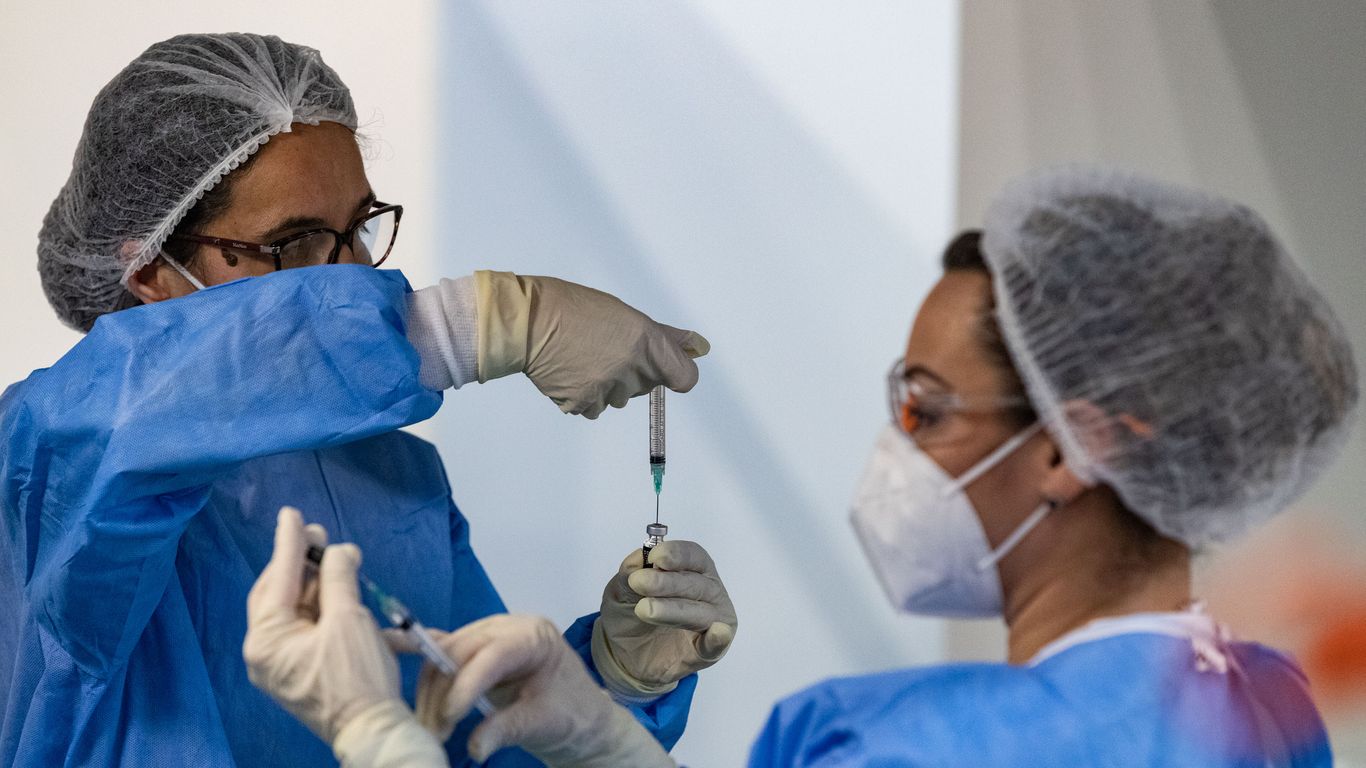Italy announced on Saturday that it is tightening restrictions in five of the country’s 20 regions in an effort to stem the spread of the coronavirus.
Driving the news: The announcement comes as health experts and scientists warn of the most transmissible variants of the coronavirus, according to Reuters.
The situation: For the first time since the end of January, two regions – Basilicata and Molise – have been placed in the country’s red zone, the strictest layer of Italy’s color-coding system.
- All bars, restaurants and non-essential businesses must close and movement will be severely limited.
- The layers (white, yellow, orange and red) are based on levels of infection and other factors.
- In Lombardy, Marche and Piemonte, which have been moved from the yellow to orange zones, restaurants and bars are expected to close, except for food delivery. Residents are also not allowed to leave their cities, except in an emergency or for health and work reasons.
- Yes but: The island of Sardinia became the first region to move to the minimally restrictive white zone, according to Reuters.
What they are saying: “Many outbreaks are due to (new) variants. I am concerned about the progress of the epidemic, “Gianni Rezza, senior adviser to the Ministry of Health, told Reuters.
- “We must maintain our guard and intervene promptly and forcefully where necessary,” added Rezza.
The big picture: Earlier this week, the country extended the ban on non-essential travel between regions until at least March 27, according to Reuters.
- Italy started its inoculation campaign last year and has so far administered more than 4.2 million doses of the vaccine. More than 1.3 million people have been fully vaccinated.
- According to data from the Ministry of Health, the country registered 20,499 new COVID-19 cases on Friday, against 19,886 the previous day.
- More than 2.9 million cases and 97,500 deaths have been reported in Italy since the pandemic began.
